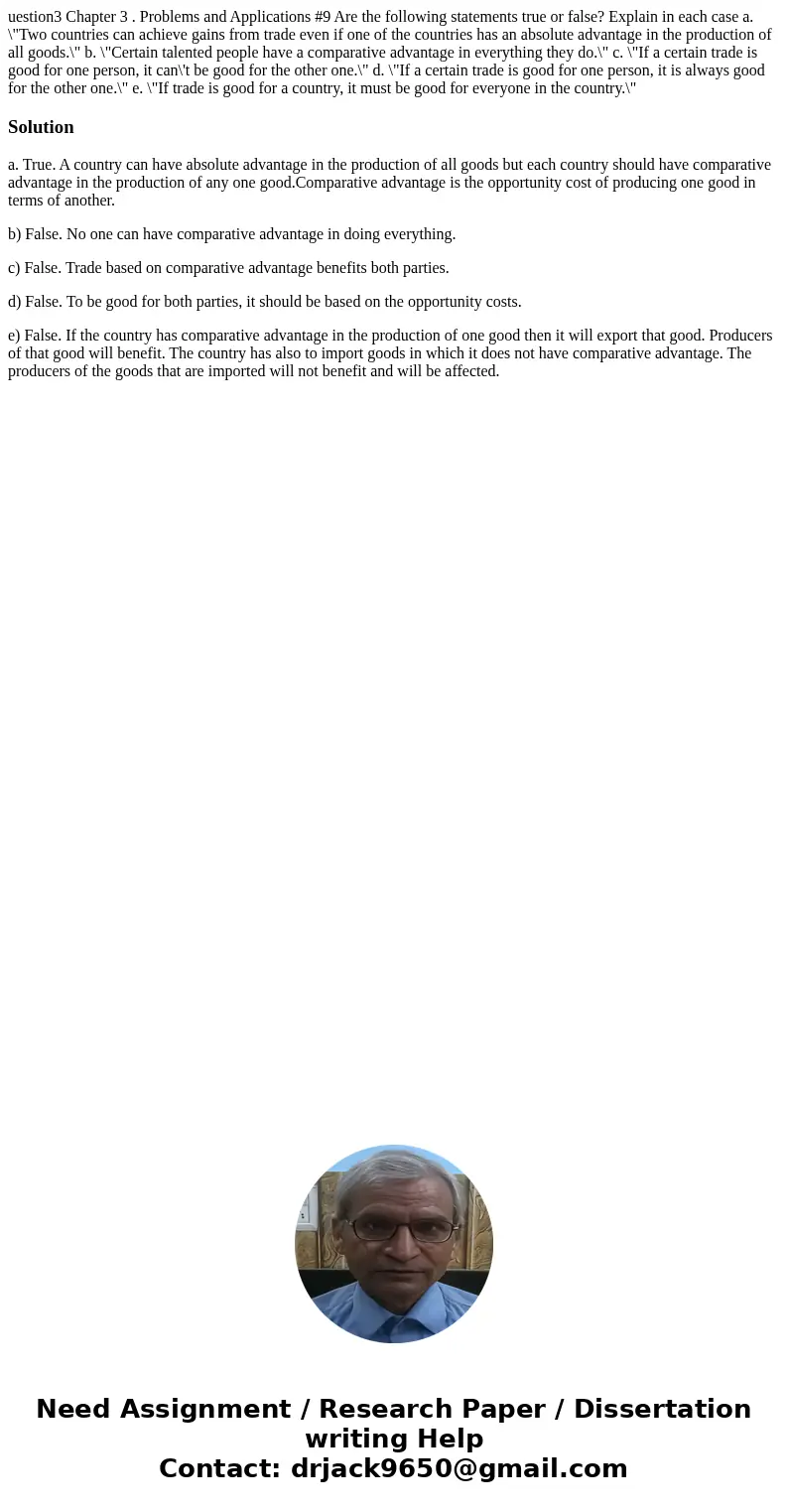uestion3 Chapter 3 Problems and Applications 9 Are the foll
Solution
a. True. A country can have absolute advantage in the production of all goods but each country should have comparative advantage in the production of any one good.Comparative advantage is the opportunity cost of producing one good in terms of another.
b) False. No one can have comparative advantage in doing everything.
c) False. Trade based on comparative advantage benefits both parties.
d) False. To be good for both parties, it should be based on the opportunity costs.
e) False. If the country has comparative advantage in the production of one good then it will export that good. Producers of that good will benefit. The country has also to import goods in which it does not have comparative advantage. The producers of the goods that are imported will not benefit and will be affected.

 Homework Sourse
Homework Sourse